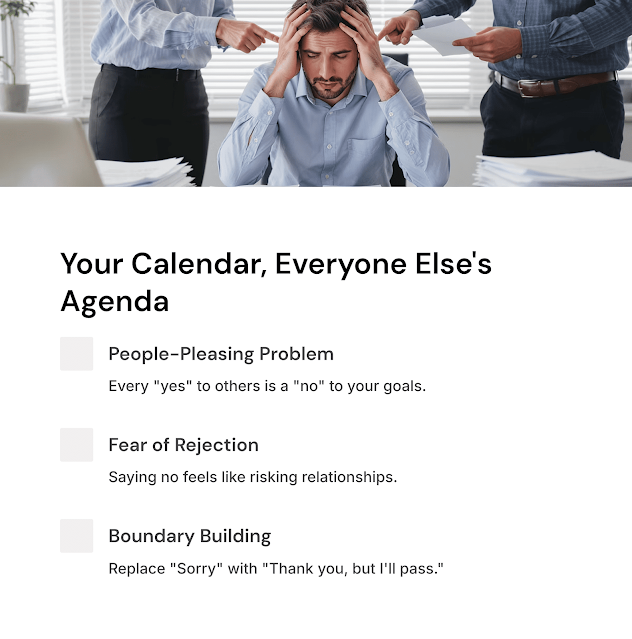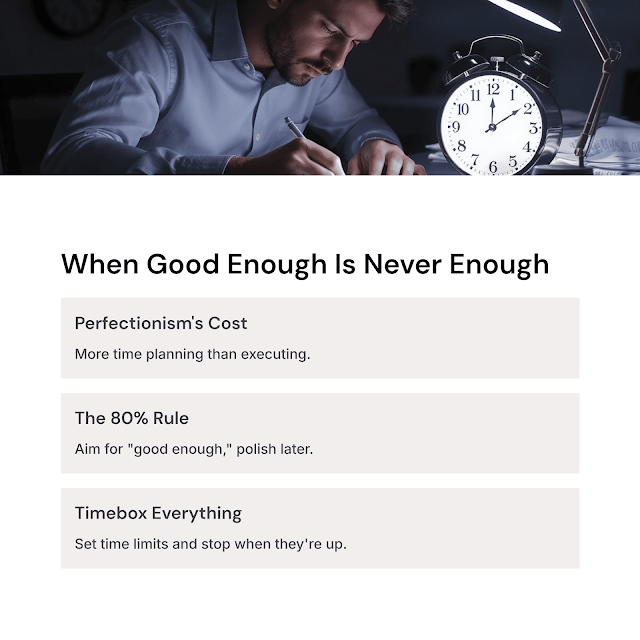Why do smart, driven people constantly run out of time? Maybe it's not about effort, but hidden habits sabotaging your clock.
Most of us think we just need better planners or apps to fix our time management. But the real culprits are far more personal. Based on psychological research and real-life experiences, we’re going deep into the five hidden habits that ruin time control. Trust me, once you see them clearly, you can't unsee them. And that's the first step to breaking free.
1. Procrastination: The Hidden Saboteur of Time
Let’s be honest—procrastination is that silent thief we all know too well. You know you’ve got a big task looming, but somehow your brain convinces you to check Instagram, clean your desk, or even reorganize your entire bookshelf. It’s not laziness; it’s often our brain’s way of escaping discomfort. According to research from university counseling centers, procrastinators either underestimate how long tasks will take or overestimate how unpleasant they’ll be.
But here's the tricky part: procrastination often feeds on fear—fear of failure, of imperfection, of criticism. Perfectionists fall into this trap easily, hesitating to start unless they’re sure everything will go flawlessly. And while they hesitate, the clock keeps ticking.
There’s also a neurological twist. People who procrastinate chronically tend to have a reward system that overreacts to short-term pleasure. So instead of writing that urgent report, your brain screams for quick dopamine hits—like YouTube shorts or yet another coffee break. Over time, this rewires your brain to crave delay and avoid discomfort, creating a loop that’s hard to break.
And if that wasn’t enough, procrastination is often tied to deeper psychological issues like anxiety or depression. People aren’t lazy—they’re overwhelmed. And instead of confronting the task, they retreat into activities that feel safer. So beating procrastination isn’t about getting tougher—it’s about getting smarter.
Here’s what actually works: break tasks into micro-steps and set a ridiculously easy starting goal. Record how long each task takes to shatter time illusions. Reward yourself for progress, and introduce small penalties for delays. Oh, and don’t ignore your mental health—because your emotional bandwidth is often the real bottleneck.
2. Lack of Prioritization: When Everything Feels Urgent
Ever felt like you worked all day but got nothing meaningful done? That’s what happens when you don’t prioritize. People who fail to set priorities tend to treat every task as equally important. It’s the classic case of mistaking activity for productivity.
Without clear priorities, you might answer emails, take every meeting, or update your calendar—while the real work sits untouched. You look busy, but your goals are buried under the noise.
There’s a name for this: the "busyness trap." And it leads to burnout fast. The problem? Most people confuse urgency with importance. Just because something screams for your attention doesn’t mean it deserves it.
The fix is simple but powerful. Try the Eisenhower Matrix. Sort tasks by urgency and importance. Focus only on what’s both. Limit yourself to three major tasks per day. Review your week every Sunday and align it with your bigger goals. Use Pareto’s 80/20 principle: identify the few tasks that drive most of your results—and give them your best energy.
3. Inability to Say No: Other People’s Agendas Taking Over
If your calendar is full of other people’s tasks and not your own, chances are you’re struggling to say no. Many time management disasters aren’t caused by laziness, but by people-pleasing.
It often starts with fear—of rejection, of conflict, of being seen as “difficult.” Some just want to be liked. Others dread confrontation. But every “yes” to someone else is a “no” to your own goals.
- Replace “Sorry, I can’t” with “Thank you, but I’ll pass”—it softens rejection.
- Give a clear, factual reason like “I’m fully booked this week.”
- Offer alternatives—“Maybe check with Sarah, she’s great with this.”
- Practice small “no’s” regularly—it builds confidence like a muscle.
Boundaries protect your time, focus, and mental energy. Without them, your day becomes a to-do list that others wrote. Saying no isn’t rude—it’s responsible.
4. No Time Tracking: Running Blind in a Timed Race
Imagine trying to improve your finances without knowing where your money goes. Sounds impossible, right? Yet so many of us try to manage time without tracking it. We say, “I was so busy today!”—but can’t recall exactly what we did. That’s the problem with not tracking your time. You can’t fix what you don’t see.
Without time data, you operate on vibes. You might be wasting 45 minutes daily on mindless scrolling or meetings that could’ve been emails. But it doesn’t feel like much—until it adds up. And it always does.
Tracking your time—even just for a week—can be a game-changer. It shows you the reality versus your assumptions. You might realize a 10-minute “break” happens five times a day. Or that your morning routine eats more time than you thought.
Here’s how to start: record every activity in 15-minute blocks. Yes, it’s annoying at first—but eye-opening. You can also use apps like Toggl or TimeTune to automate this. Once you have the data, analyze it. Highlight inefficiencies. Then tweak.
Finally, don’t forget the daily review ritual. Each night, reflect: “Did I use time wisely today?” This single question, asked consistently, will change your entire mindset.
5. Perfectionism: When Done Is Never Good Enough
Perfectionism is sneaky. On the surface, it looks like high standards. But dig deeper, and you’ll find fear—of criticism, failure, or not being “enough.” Perfectionists often spend more time planning than executing. They obsess over details and miss deadlines. Worse, they may never even start, paralyzed by the belief that it must be flawless or nothing.
This mindset leads to emotional exhaustion. Even small setbacks feel like catastrophes. One unexpected delay? And they scrap the whole schedule. It’s all or nothing. That’s the danger. Time slips away in endless revisions, and the work never feels “ready.”
- Use the 80% rule: Aim for “good enough,” then polish later.
- Shift from plan-heavy to action-first. Try agile thinking—start messy, refine as you go.
- Reframe failure as feedback. It’s not a personal flaw—it’s data.
- Timebox everything. Give each task a max time limit—and stop when it’s up.
Remember, no one cares about your work being perfect if it never sees the light of day. Done is always better than perfect—especially when it comes to time.
You made it to the end—and maybe now, you're seeing your time struggles through a whole new lens. If even one of these five habits felt uncomfortably familiar, don’t panic. That awareness is the beginning of real, sustainable change. Start small. Pick just one habit and tackle it for a week. Whether it's tracking your time, saying no, or ditching perfectionism, the key is momentum. Keep going, and you’ll build a system that works for you—not against you.
Related Resources
- Ewha Counseling Center – Psychology of Procrastination
- Genie Plus Blog – Time Management Series
- Raum World – Prioritization & Productivity
- TED – Inside the Mind of a Master Procrastinator








Post a Comment